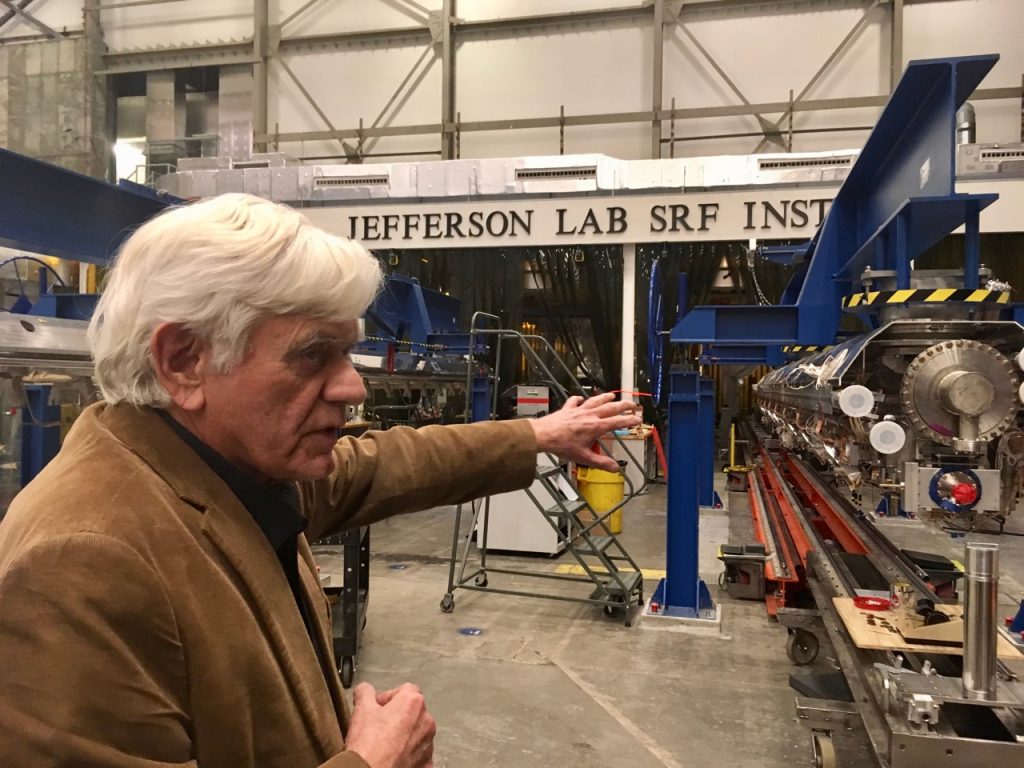
Larry Phillips is one of the most interesting people I have ever met. I consider him a role model, and I learned today that we lost him to cancer. He was my PhD advisor.
Larry was and is well-regarded in the field of particle accelerator technology. I worked with him on problems related to thin-film superconductivity for accelerating cavities, but he was one of those smart, versatile people who ends up getting involved in all sorts of fun problems. You’ll find that he’s made contributions to the design of cryomodules, RF windows, electropolishing of niobium accelerator components, plasma surface treatments, … it’s a long list. He also had an encyclopedic knowledge of how to actually get things built. He “played against type” that way; he could keep up with condensed matter theorists, metallurgists, machinists, and grad students. In recent years he had gotten involved in the design of accelerator-driven nuclear reactors, and novel methods for detecting dark matter.
This diversity of interests and competence is maybe not surprising if you know anything about his life. Larry lived in New York in the 60s, partying with bohemians and working as a motorcycle courier. He blew glass professionally; he got his PhD working with Hans Meissner (son of Walther Meissner, who discovered the eponymous Meissner effect); he lived on a sailboat for a while; he not only designed his own house, but the construction methods used to build it; he was a devoted husband and father; and he was an excellent mentor for young physicists.
This is the part of the essay where I talk about gratitude. Larry took me on as a student at a time when I was feeling very unsure about myself, academically. I couldn’t have been luckier, in retrospect. He was always available when I needed support, and he also seemed to know when I needed to be left alone to sort things out for myself.
He went out of his way to make opportunities for me. There were the kinds of things you’d expect from a PhD advisor, like professional networking or experimental support. But he also made sure I didn’t graduate without learning how to weld, braze, run the hydraulic press, and how to talk to a machinist. (You’d be surprised how many scientists are not good at this.) And he set an example for me and all the people in our group with his positive attitude. He was always getting enthusiastic for new projects, and declaring that they would be fun. (He would also declare that new projects would be “easy”, but we all knew that when he said “easy” he meant “probably not impossible”.) I had a great time with him.
If you have never been a graduate student, you might not see this last statement as an appropriately big deal. Some of my grad school pals had advisors who worked them like dogs, or completely ignored them, or (in a few terrible cases) were outright emotionally abusive. This sort of thing is unfortunately not uncommon. And while I could never claim that the process of graduating wasn’t stressful, I came out of it feeling like a “real” scientist, with an appreciation for the state of my field and the ways I might contribute to it. I came out feeling positive and ready to go.
That’s why I’m talking about gratitude right now. It’s hard to overstate the enormity of the gift that Larry gave me. And not just me. We threw a surprise party for his 80th birthday just a few months ago, and the crowd there was full of people who will tell you the same things I’ve been telling you now.
Thanks, Larry, from all of us.